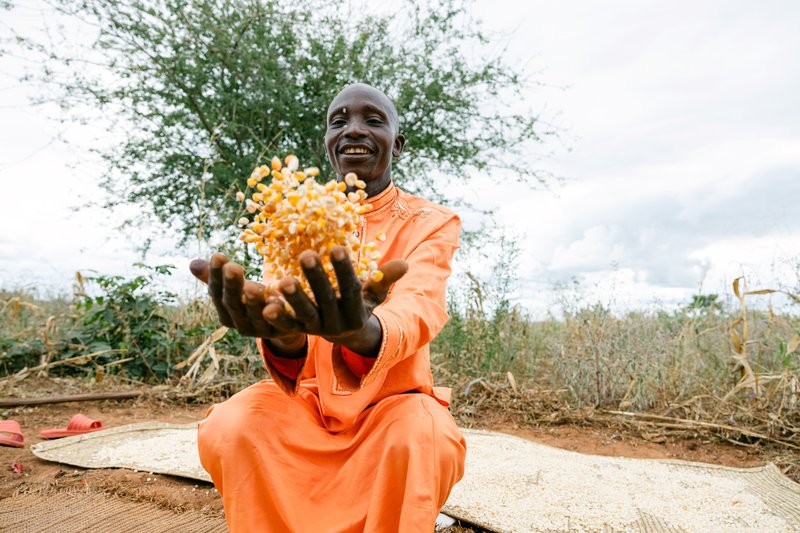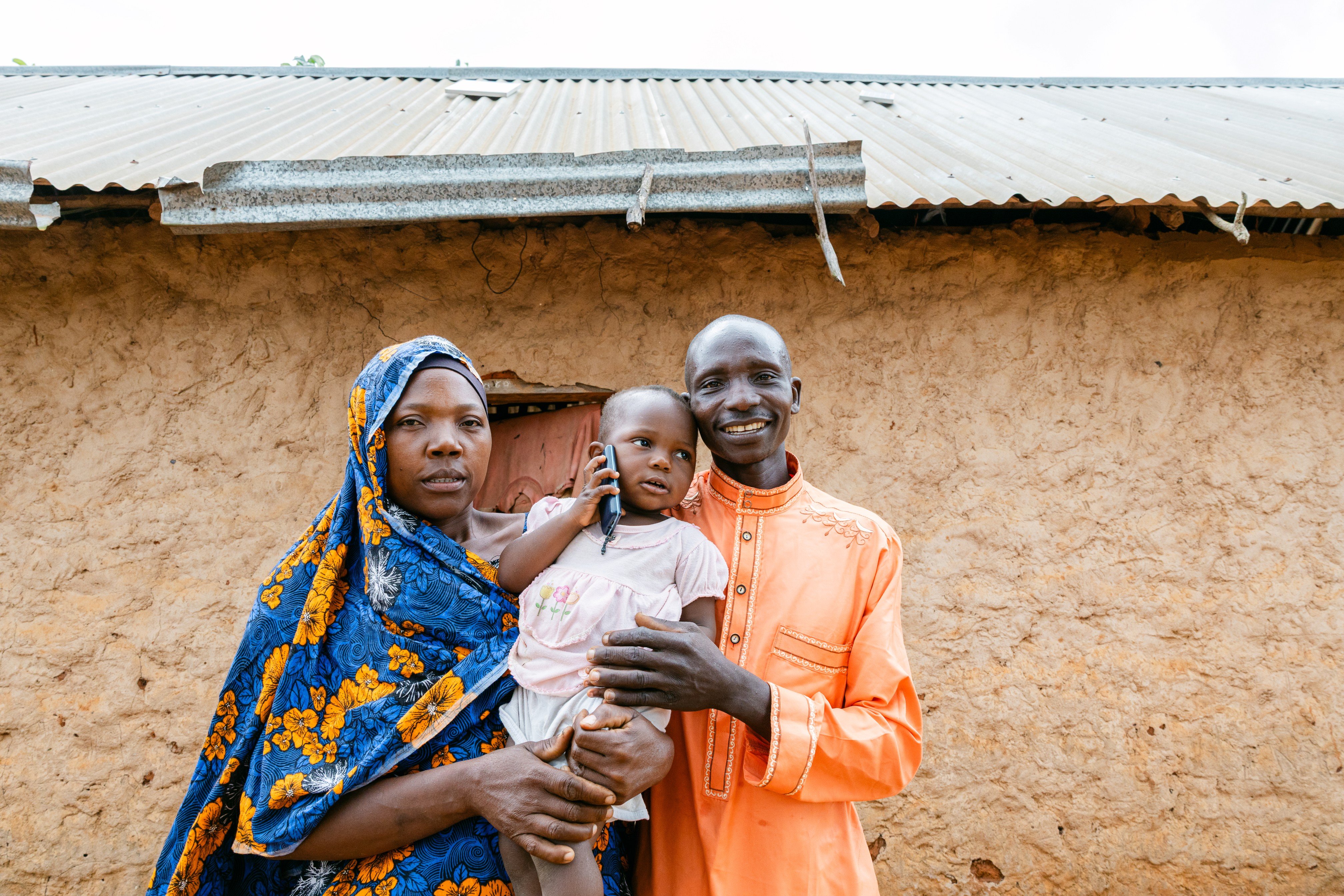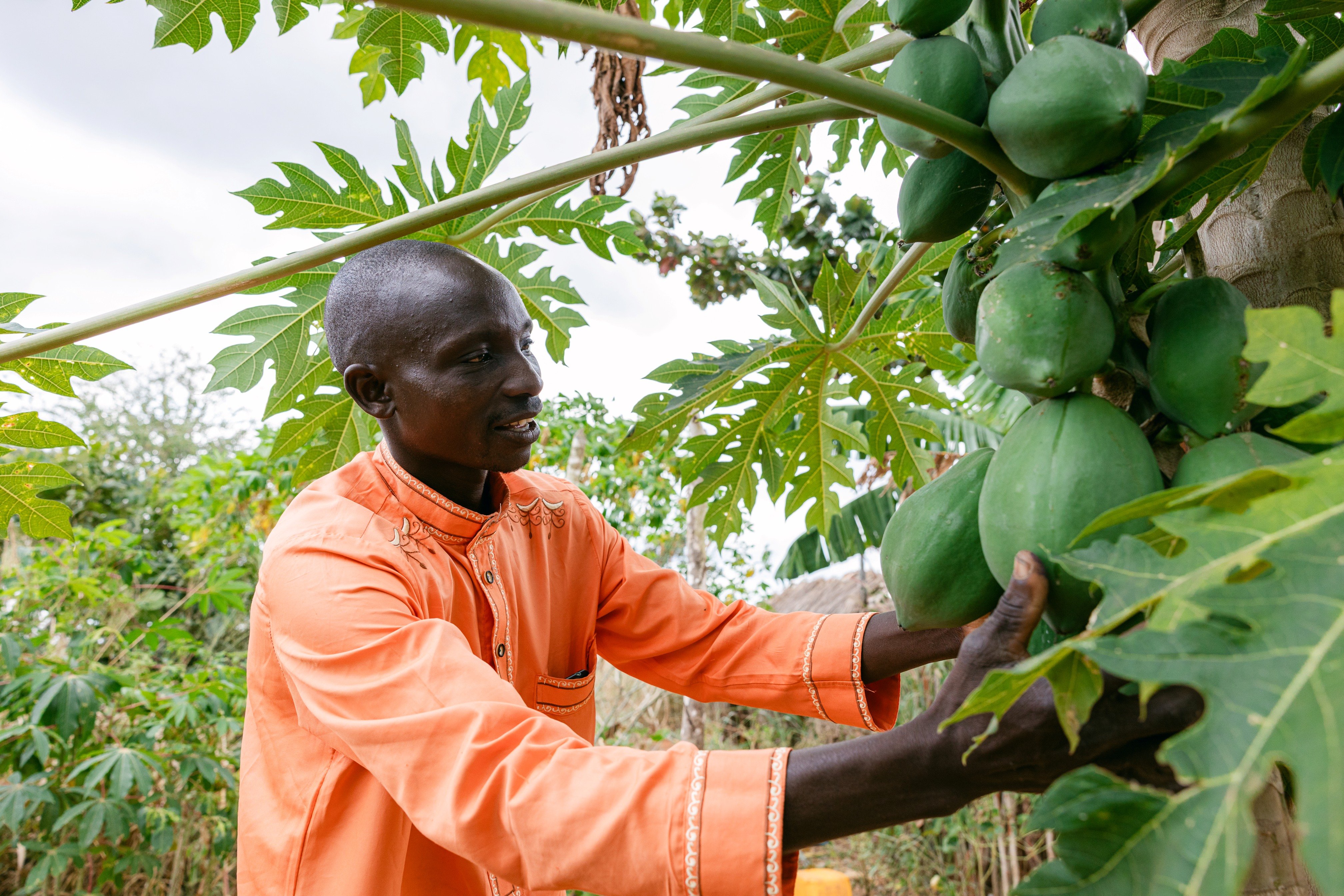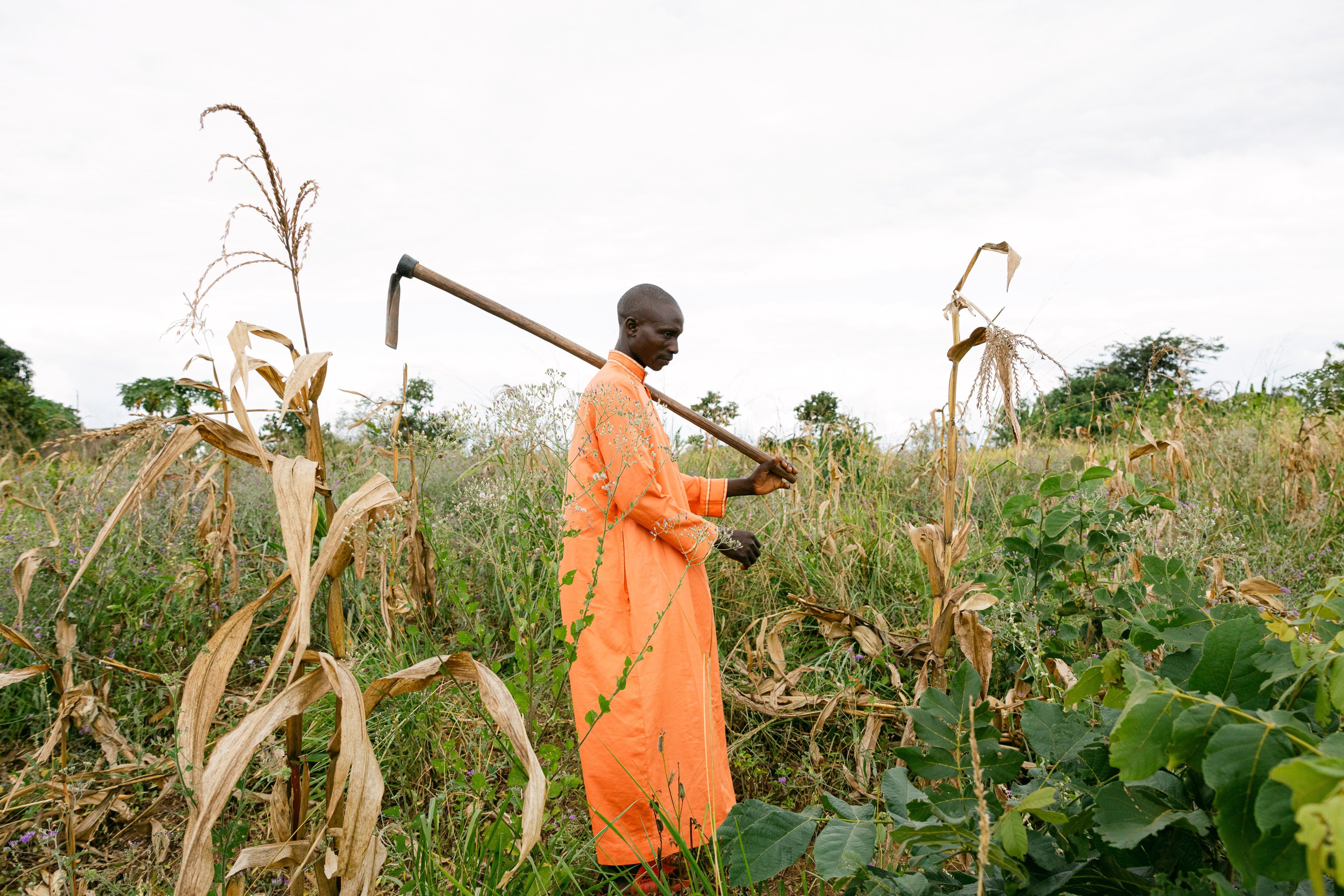
A portrait of 39 year old Shabani Ramadhani at his farm in Ludiga Tawalanga, Bagamoyo, Tanzania.
Sam Vox/Uniting to Combat NTDs
The area around Shabani’s native Ludiga village in Tanzania’s Pwani region is known as Msinune, a Swahili word meaning “don’t be sad”. But for years, sadness and pain defined Shabani’s life.
"I couldn't stand or move for more than two hours without feeling pain or nausea,” he recalls. “It started in 2010 as a small thing, but eventually I couldn't walk well or work without much pain.”
As a subsistence farmer and sole breadwinner of the house, he had no choice but to brave the pain of hydrocele, a common manifestation of lymphatic filariasis (LF) – a neglected tropical disease caused by parasitic worms that are transmitted through the bite of an infected mosquito. Globally, over 657 million people in 39 countries remain at risk of this disease.

Sam Vox/Uniting to Combat NTDs
A Family’s Struggle
Although Shabani didn’t experience much stigma from his community, occasional comments from children as he walked through the village stung. This didn’t stop him from taking part in community activities, but it was with great difficulty. Shabani’s family were very supportive and helped him to visit various clinics to seek relief. Sadly, those treatments were only temporary. And as the pain got worse, Shabani’s family tried in vain to raise the funds it would take to get him specialist help at the nearby referral hospital.
A Message of Hope
In late 2024, hope arrived via a radio announcement. Shabani’s younger brother in Bagamoyo heard that a team of doctors would be offering treatment for conditions like his.
"When I got the news, it pushed me to go there because I really wanted to get treated. I’m still a young man and I wanted to be healed," he said.
Shabani went to Bagamoyo and after an initial screening, he went into the surgery with courage and optimism. And after a 12-month recovery, he is now able to earn a living, through farming. “I can now do my work without problems. I grow maize, cassava, and other vegetables for my family. I was even able to pull out tree stumps on my own in the farm plot I rented to expand my activities," he expressed proudly.
His family is relieved and grateful. The financial burden has lifted and so has the emotional weight. "They used to say I was ageing quickly but now I am back to my youthful stature. I feel as good as I look, and I’m thankful for that," he said.

Sam Vox/Uniting to Combat NTDs
Looking ahead
Shabani now hopes his earnings from the farm will help him to build a house for his wife and children and to get a boda boda (motorcycle) to increase his income and live a good life like his peers in the village.
With over one billion people worldwide, like Shabani, still affected by neglected tropical diseases (NTDs), sustained investment in their elimination is more critical than ever. Continuing the historic progress in eliminating NTDs ensures communities like Ludiga and Msinune will be healthier, safer and stronger. Notably, every US $1 invested in preventative treatments for conditions like lymphatic filariasis (LF) yields an impressive US $25 in economic benefits, directly driving stronger economies globally. This demonstrates a clear and compelling return on investment, making NTD elimination a smart choice.
As a parting message, Shabani relays “I would tell anyone who is listening to me and has the same disease that I had, go to hospital and get treatment. If they are afraid of death, I didn’t die! I’m doing well. Go get treated then come back home and live in a good and happy environment.”

Sam Vox/Uniting to Combat NTDs